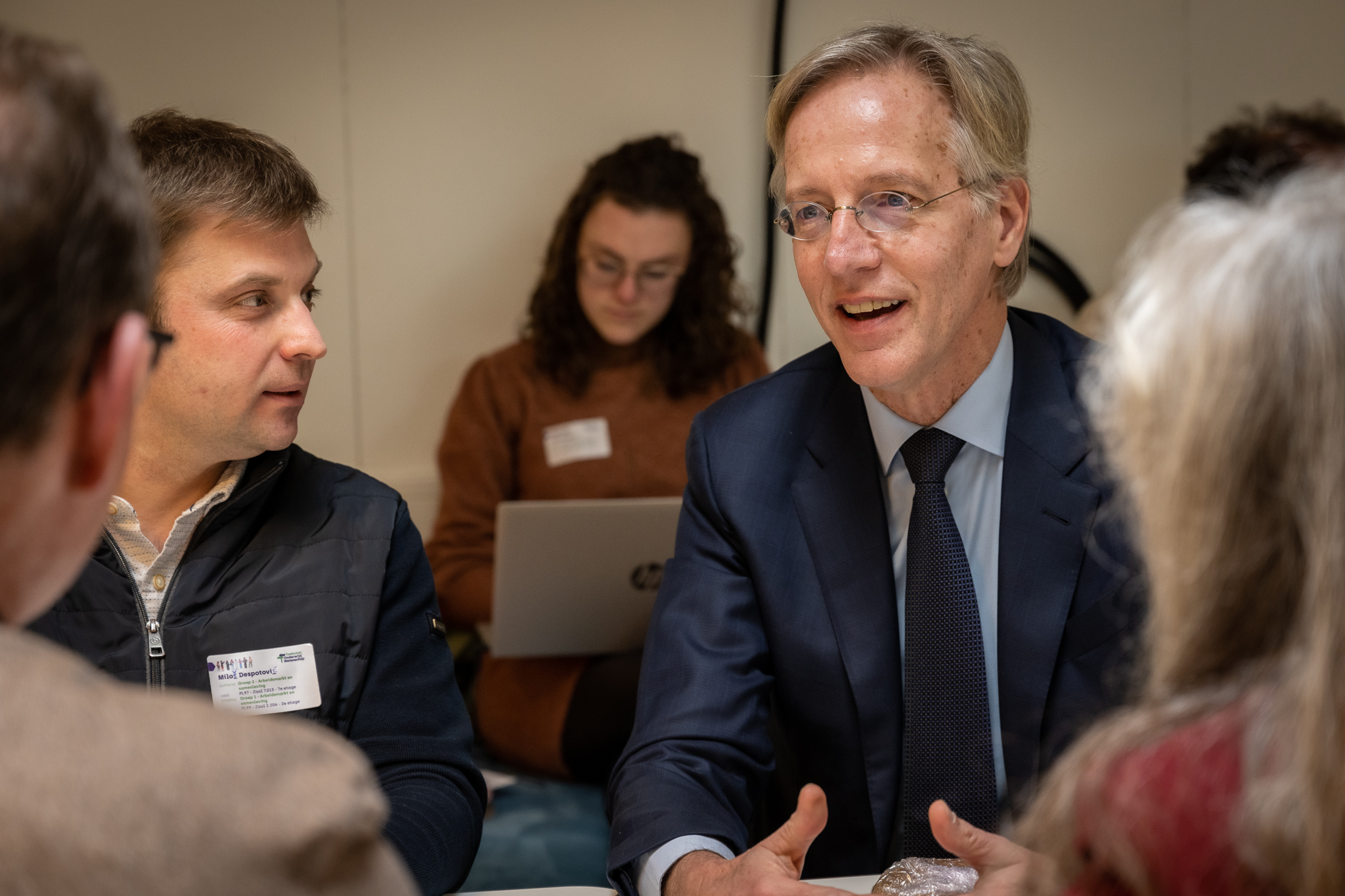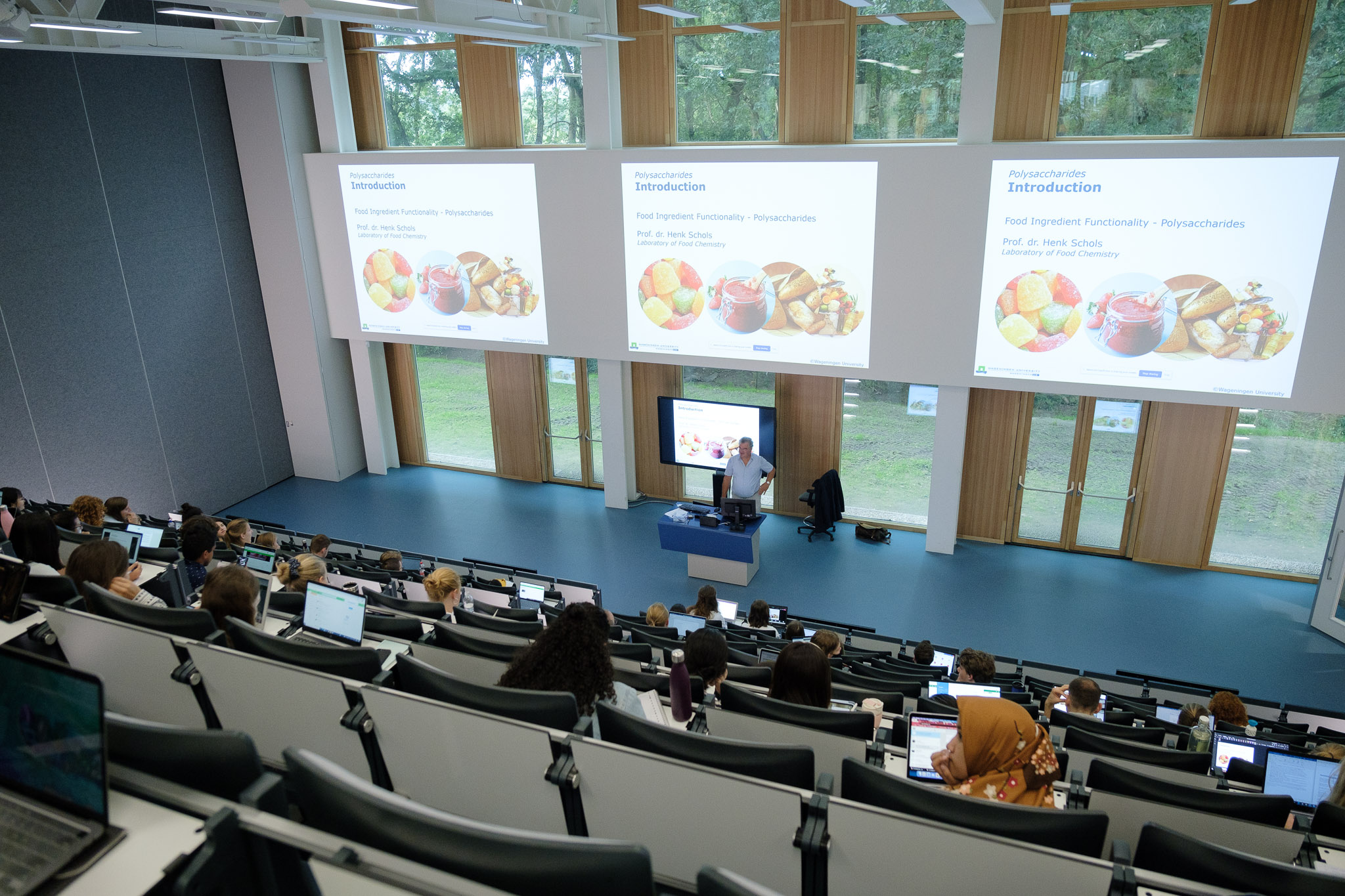The long-awaited Future Reconnaissance states that education may be better aligned with the employment market, societal challenges or the preferences of individual students. Now, the ball is in the politicians’ court.
After months of delay, outgoing minister Robbert Dijkgraaf submitted the Future Reconnaissance to the House of Representatives. In it, researchers share their perspectives on secondary professional education, higher education and science in the year 2040. In an interview with HOP, Dijkgraaf comments: ‘A key aspect is that the number of jobs will exceed the number of people. We are likely heading for structural deficits in the labour market. The question then becomes: Should we persist in allowing students to choose what they want to do, or should we channel their freedom of choice?’
2040
Researchers gathered ideas for their future perspective (entitled “It is 2040 Today”) through a series of meetings with students, teachers, researchers and other interested parties. Their report includes views on demographic ageing, migration, polarisation and other developments.
Five research agencies contributed: KBA Nijmegen, ResearchNed, CHEPS, Andersson Elffers Felix (AEF) and the Kohnstamm Institute. Together, they have identified three common threads.
More freedom or less
Administrators of the future may focus on the economy and the employment market. Students will have less freedom to choose what programme they want to follow because more students are needed for engineering, health care and education. This perspective limits the options for independent scientific research.
A second perspective focuses on societal challenges. Here, climate change, food security and equal opportunities play a part, in addition to the economy and the employment market. Programmes with a numerus clausus must focus more on a transparent and valid selection of students.
The third perspective centres around individual talent. Students have a lot of freedom, and the range of programmes is driven by demand. More funding is made available for independent research.
At odds
The perspectives call for political decisions. Some are at odds, and some are not mutually exclusive. Diligent selection procedures within the programmes with a numerus clausus could be included in all three perspectives.
Minister Dijkgraaf planned to base his course on the Future Reconnaissance, but the cabinet has since fallen, which means he will no longer do so. In a letter addressed to the House of Representatives, he limits himself to stating what options politicians must consider.
Binding study advice
Selection for programmes and the binding study advice may result in performance pressure. ‘When do these measures challenge students, and when do they cross the line to become pressuring?’ Earlier this week, the House of Representatives agreed to move discussions about the binding study advice past the elections.
Should the number of spots available for programmes that are not well-aligned with the employment market be limited? Dijkgraaf: ‘How will this impact scientific education that is not at all vocational?’
Science
Such questions are relevant for future research as well. The Minister is of the opinion that the societal challenges call for both applied and fundamental research. To this end, collaboration within organisations is needed, but also ‘between secondary vocational institutes, universities of applied science and universities and with organisations for applied research and civic parties.’
He also underscores that some decisions have already been made. ‘The cabinet has substantially increased investments in beta and technology through the sector plans, the Research and Science Fund and the National Growth Fund.’
Funding
The ministry will report back on the issue of funding. Universities, in particular, call for more stable funding to reduce their dependence on student numbers. The same applies to universities of applied science in regions with a decreasing population. This, however, is easier said than done.
In an earlier debate, Dijkgraaf explained to the House of Representatives that his ministry’s budget depends on student numbers. Hence, if part of the funding is to become more stable, another part will necessarily become more flexible. How that would impact access to education remains to be seen.’

 The universities want to keep control leading up to a legislative proposal from outgoing Minister Dijkgraaf. Photo OCW
The universities want to keep control leading up to a legislative proposal from outgoing Minister Dijkgraaf. Photo OCW 
![[Comment] Freedom of degree choice](https://www.resource-online.nl/app/uploads/2025/02/shutterstock_2417739235-scaled.jpg)
